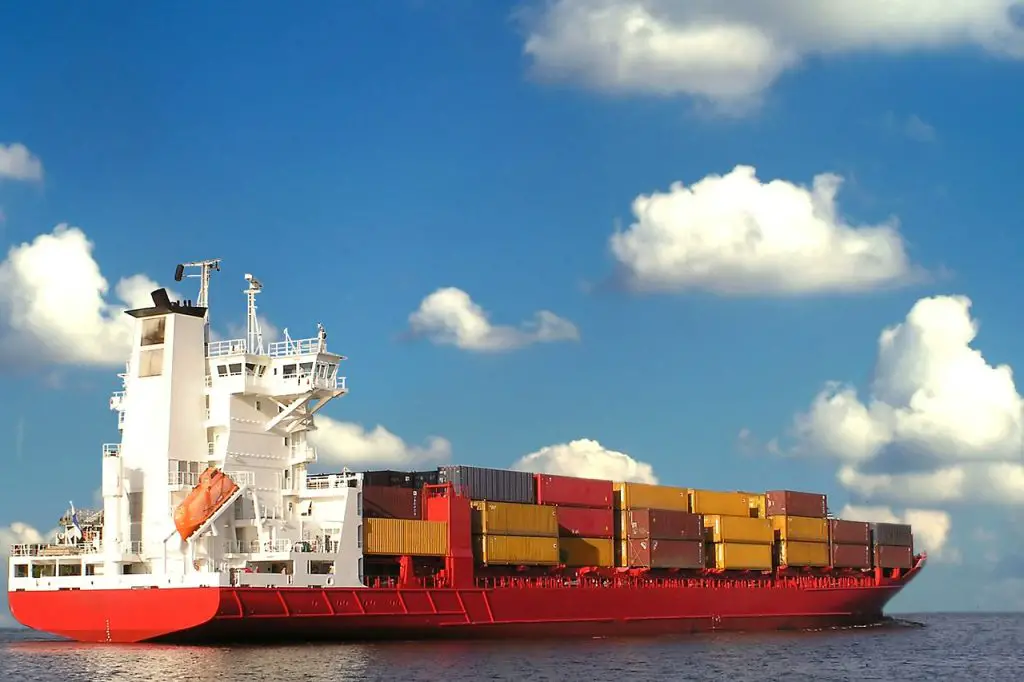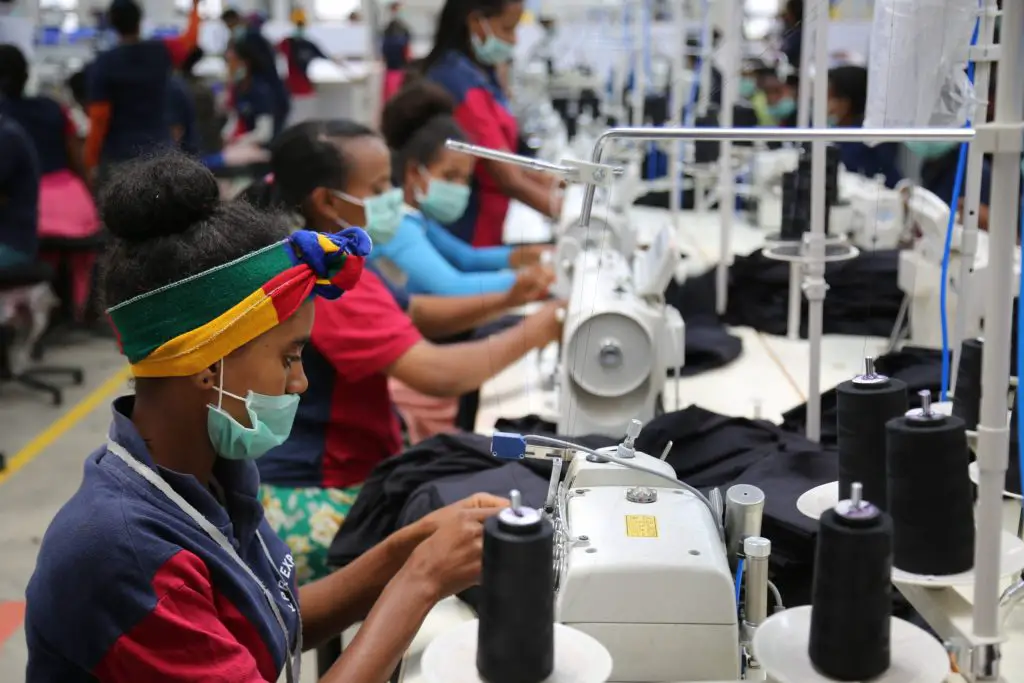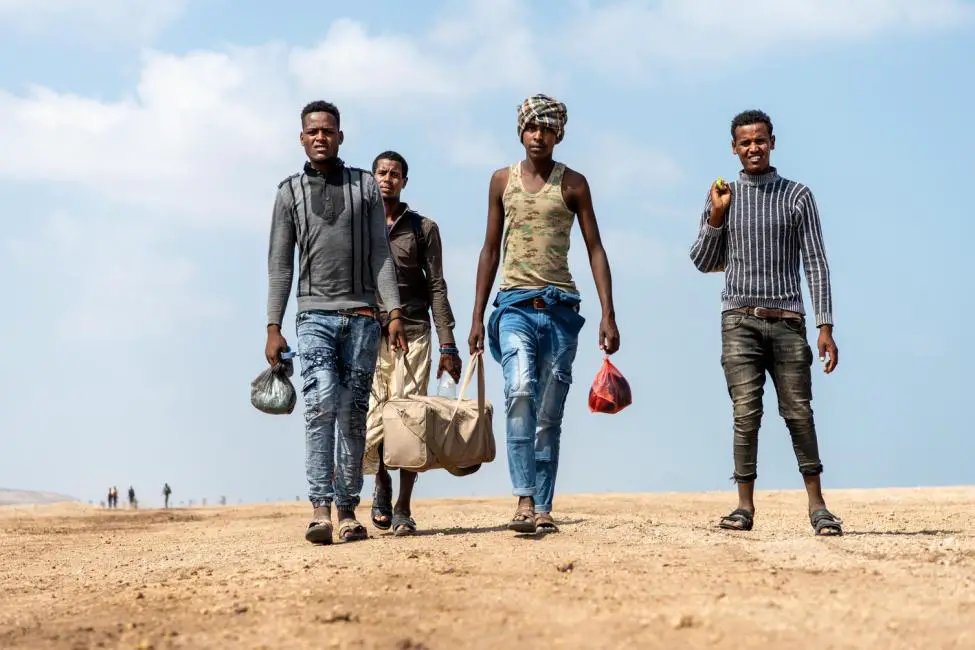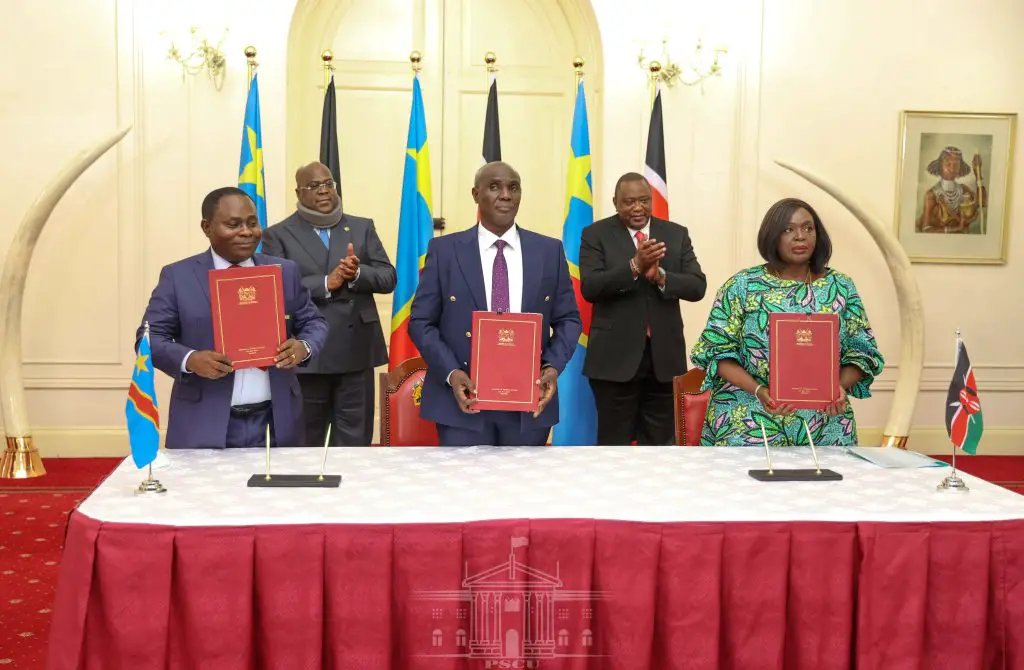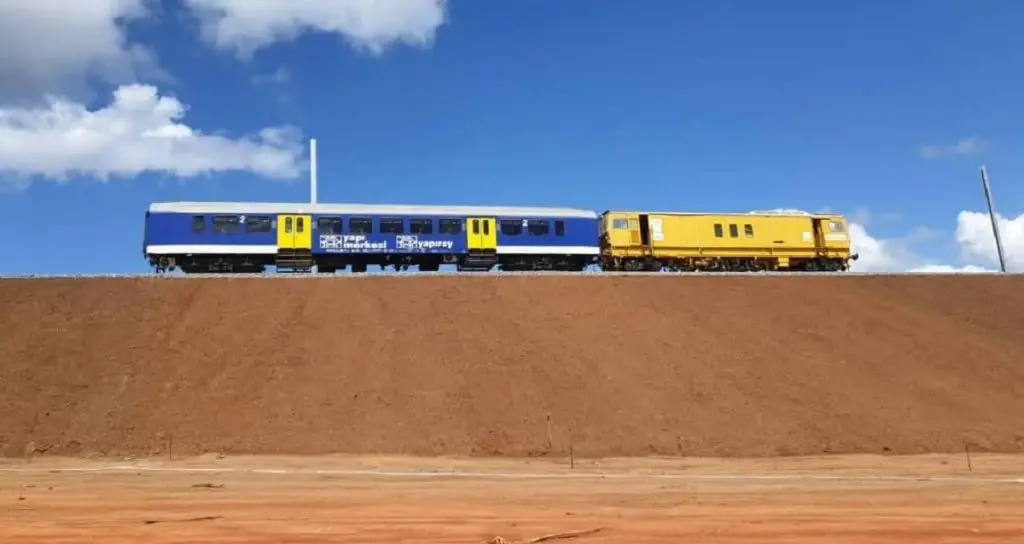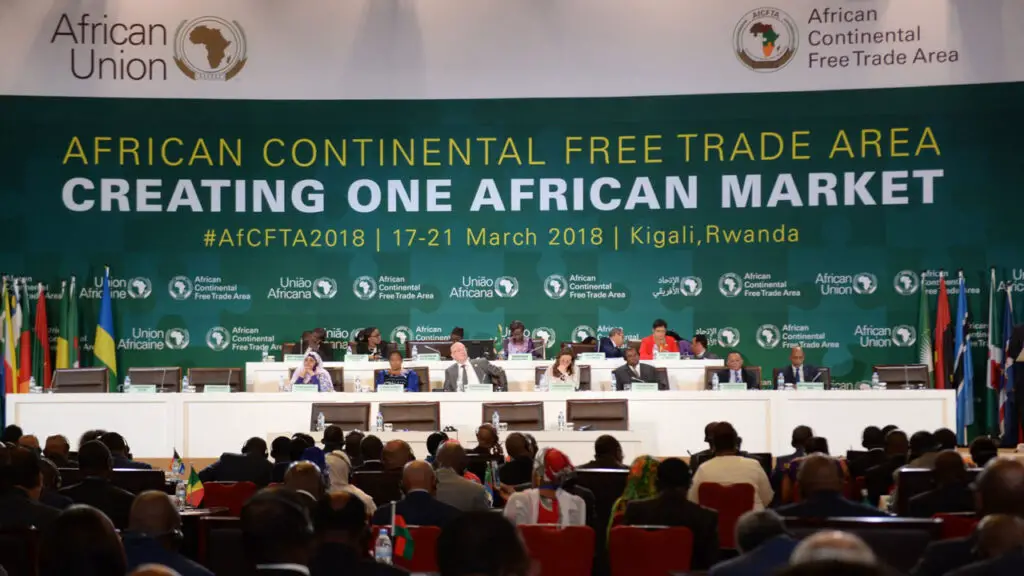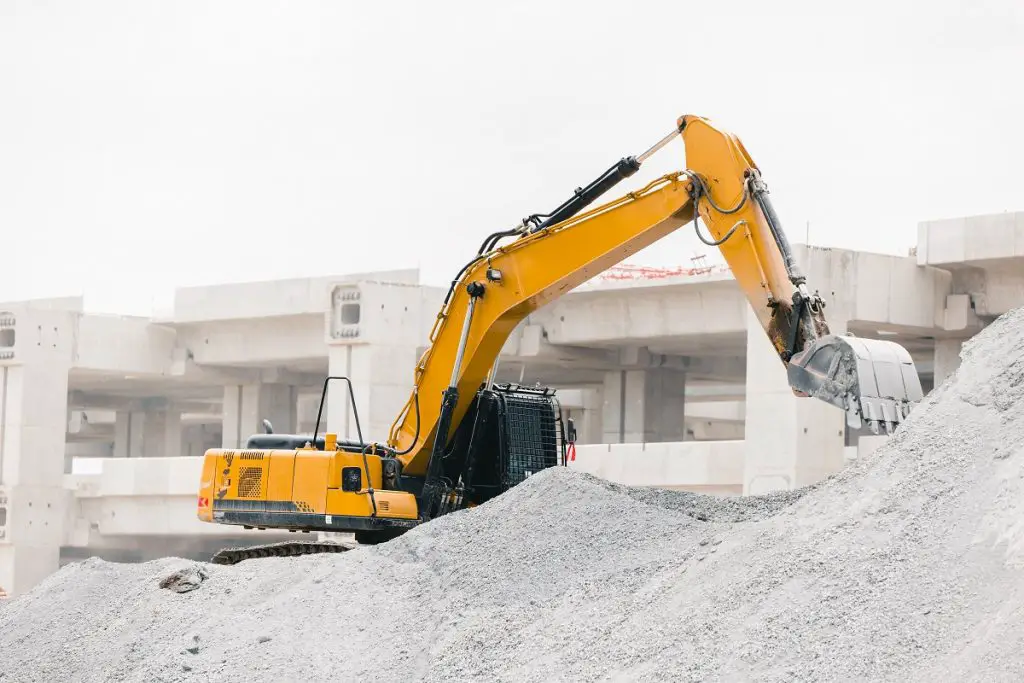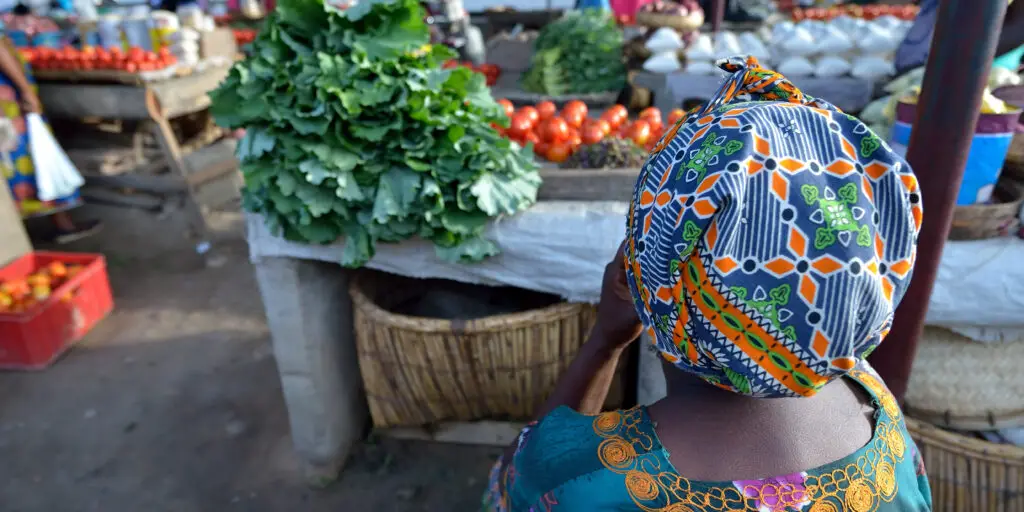- SpaceX offers Starlink kit at half price for first-time Kenyan customers
- Mobile Banking Reshaping the Gender Gap in Financial Inclusion
- Unleashing ideas: AIM Congress sets the stage for over 450 dialogue sessions
- Abu Dhabi welcomes over 330 partners for AIM Congress 2024
- Kenyan Farmers Receive $2M Boost from Africa Fertiliser Financing Mechanism
- Brace for High Interest Rates for a Longer Period World Bank Warns Kenya
- Kenya-Ethiopia Trade Relations: Legislators Advocate for Policy Alignment to Boost Ties
- Visualising the state of debt in Africa 2024
Browsing: AfCFTA
For that purpose, PAPSS has entered into a Memorandum of Understanding (MoU) with Buna, the Arab Monetary Fund’s cross-border payment system. Its objective is to make it feasible for central banks in the Arab world and financial institutions elsewhere to send and receive payments in local and international currencies.
“Buna offers potential for financial integration and economic integration in the Arab area and strengthens investment relations with global trading partners.”
According to officials who announced the arrangement on Tuesday, the latest partnership lays the groundwork for PAPSS and BUNA to develop an Africa-Arab payment gateway.…
African countries’ attempts to form a common regional currency have proven futile precisely because of all the frameworks of laws that need to be revised and harmonized in the different countries. For example, the eco in West Africa and the shilling in East Africa.
Ghana and Nigeria have even gone ahead to create their central bank digital currencies, indicating their lack of belief in the workability of the eco.
What does this mean? In the next 100 years or more, Africa cannot create a common currency acceptable throughout the continent.…
AfCFTA is reshaping African markets; deepening economic integration in accordance with the Pan African Vision of ‘An integrated, Prosperous and Peaceful Africa,’ as enshrined in Agenda 2063. The agreement established a single continental market for goods and services, making for the largest and most ambitious trade bloc in the world, after the WTO. This has created a new market of 1.3 billion consumers across Africa, accounting for a combined GDP in excess of US$3.4 trillion in 55 countries.
According to the World Bank, AfCFTA has the potential to eradicate extreme poverty in the lives of 30 million Africans, and boost the incomes of 68 million of them, that live below the poverty line. Moreover, in the long term the continent is set to immensely reap more benefits out of the Agreement such as the diversification of Intra African trade, elimination of barriers and tariffs, job creation, increase in wages for …
Because emigrants bring with them more than just economic needs from their home countries, migration is a trade stimulant in and of itself. With this movement, there is increased demand for housing, food, transportation and other services which are beneficial to local economies.
In addition, migrants can serve as bridges to a wider market because they promote trade and tourism in their home countries, thereby creating demand.
The diaspora population’s needs can be met if the African economy is stimulated by the trade-in African heritage. While there are many reasons for migration, one of the most important is joblessness, both within Africa and to other parts of the world. …
For starters, this is good news for the landlocked countries. It means that the landlocked countries in the EAC including Uganda, Burundi, Rwanda and South Sudan now have another coastal gateway away from the East African one in Kenya and Tanzania.
In addition, all the partner states have better bargaining power when it comes to trading with other blocs on the continent or internationally.
With the African Continental Free Trade Area (AfCFTA), the deal gets even sweeter.
Continent-wide, fully implementing the AfCFTA will increase intra-African trade with the elimination of duties. Projections show that by just reducing non-tariff barriers (NTBs), intra-African trade could double.…
Since the beginning of the Russia-Ukraine crisis, fertilizer prices have risen by 21 per cent.
It was noted that “the recovery of Africa has been impeded by greater inflation and tighter global financial conditions as well as rising interest rates,”
To counter external shocks, such as the Ukraine crisis, she urged public and private sector partnerships to enhance intra-African agri-food, industry, and service trade. She also urged the continent’s recovery from Covid-19 to get back on track.
When asked if Africa needs a second Marshall Plan, Keita said that Africa already has an effective one, in the AfCFTA, that may help it prepare for unpredictable times.…
Implementing the AfCFTA fully will increase intra-African trade through the elimination of import duties. By just reducing non-tariff barriers, intra-African trade could double.
The implementation of the Free Trade Area will lead to an increase in intra-African freight demand of around 28% by 2030 in comparison to a scenario without its implementation. Specifically, demand for road, rail, maritime and air freight will increase by 22%, 8%, 62% and 28% respectively.
According to the United Nations Economic Commission for Africa (ECA), the modal share on rail would increase from 0.3% to about 7% with Africa requiring close to 2 million additional trucks, over 100,000 rail wagons, 250 aircraft, and more than 100 vessels by 2030, if the AfCFTA is fully implemented.
Aircraft demand to support trade flows within West Africa will increase by 13.2% by 2030 while trade between North and West Africa would increase demand for aircraft by 12.9%. Within …
One of the major criticisms raised against his ambitious continent-wide free trade pact is the fact that it is bound to have disproportionate benefits for different countries. There are already pre-existing inequalities that favour more developed countries.
Bluntly speaking, it is to be reasonably expected that it is the continent’s tycoons, large business owners that will benefit the most.
Consider this, only three of the agreement’s members i.e. Nigeria, South Africa and Egypt account for almost half (50%) of all of Africa’s GDP. Take for instance the fact that in 2020 alone, the continent of Africa as a whole, imported US$20 billion worth of goods from South Africa.
With the tariff-free movement of goods, South Africa will enjoy a tremendous increase in trade output to the rest of the continent at much lower costs.…
UNCTAD World Investment Report 2021 specifically states that “Greenfield investments in industry and new infrastructure investment projects in developing countries were hit especially hard.”
These financial flows of investment dollars have deep-rooted implications for Africa in the sense that they are vital for sustainable development in less developed and poorer countries.
The decline in investment flows was disproportionately skewed towards developed countries where FDI fell by 58 per cent according to UNCTAD. Investment flows in developing economies fell by a moderate 8 per cent mainly because of resilient flows in Asia.…
Women’s role in trade and economic growth is significant and across Africa; they have mostly worked in export-oriented industries like textiles and clothing, agriculture, and tourism.
For long, women have been stuck in low-paid labour but with increased demand for skills, things are changing. The AfCFTA offers an opportunity for African women to take a deep dive into the opportunities it offers. Women are now taking on more jobs in wholesale and retail trade, finance, business services, and hospitality which have prepared them for the opportunities that the continent offers under the trade agreement.
Intra-African trade is expected to rise by between 33 per cent and 52 per cent but this is dependent on how much tariff liberalisation takes place between African countries.…





